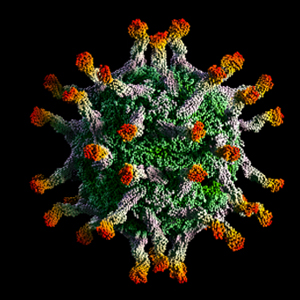
iStock
India marks three years since its last reported polio case on Monday, meaning it will soon be certified as having defeated the ancient scourge in a huge advance for global eradication efforts.
The landmark is seen as confirming one of India's biggest public health success stories, achieving something once thought impossible, thanks to a massive and sustained vaccination programme.
With the number of cases in decline in Nigeria and Afghanistan, two of only three countries where polio is still endemic, world efforts to consign the crippling virus to history are making steady progress.
Polio over the two years
"In 2012, there were the fewest numbers of cases in endemic countries as ever before. So far in 2013 (records are still being checked), there were even less," Hamid Jafari, global polio expert at the World Health Organisation told AFP.
"If the current trends of progress continue we could very easily see the end of polio in Afghanistan and Nigeria in 2014," added Jafari, hailed as having played a crucial role in India's victory.
Read: Global polio cases down
A global issue?
Despite the success, isolated polio outbreaks in the Horn of Africa and war-wracked Syria emerged as new causes for concern in 2013.
Countries are certified by the WHO as being polio-free if they go 12 months without a case, and are then said to have eradicated it after a period of three years without new infections.
India will likely receive this endorsement only at the end of February or early March, which will trigger more exuberant celebrations than are likely to be seen on Monday.
Fake vaccination programme
There also remain reasons for caution, with the virus still considered endemic in neighbouring Pakistan, where vaccinators are being killed by the Taliban which views them as possible spies.
Read: Post-Polio Syndrome - A sequel to Polio
A fake vaccination programme was used by the CIA to provide cover for operatives tracking Al Qaeda chief Osama Bin Laden, who was killed in Pakistan by US special forces in May 2011.
Hopes of progress were given a boost last month when cricketer-turned-politician Imran Khan pledged to personally spearhead vaccination efforts in the troubled northwest of the country.
'Monumental milestone'
India's success was built on a huge vaccination programme that began in the mid-1990s with the backing of the central government and a coalition of charities, private donors, and UN agencies.
An army of more than two million vaccinators, backed by local religious and community leaders, canvassed villages, slums, train stations and public gatherings in even the most remote parts of the country.
The country reported 150 000 cases of paralytic polio in 1985, and it still accounted for half of all cases globally in 2009, with 741 infections that led to paralysis.
In 2010, the number of victims fell to double figures before the last case on January 13, 2011, when an 18-month-old girl in a Kolkata slum was found to have contracted it.
Read More:
Why polio is still around
Polio eradication by 2018
New vaccination plan aims to rid world of polio
The landmark is seen as confirming one of India's biggest public health success stories, achieving something once thought impossible, thanks to a massive and sustained vaccination programme.
With the number of cases in decline in Nigeria and Afghanistan, two of only three countries where polio is still endemic, world efforts to consign the crippling virus to history are making steady progress.
Polio over the two years
"In 2012, there were the fewest numbers of cases in endemic countries as ever before. So far in 2013 (records are still being checked), there were even less," Hamid Jafari, global polio expert at the World Health Organisation told AFP.
"If the current trends of progress continue we could very easily see the end of polio in Afghanistan and Nigeria in 2014," added Jafari, hailed as having played a crucial role in India's victory.
Read: Global polio cases down
A global issue?
Despite the success, isolated polio outbreaks in the Horn of Africa and war-wracked Syria emerged as new causes for concern in 2013.
Countries are certified by the WHO as being polio-free if they go 12 months without a case, and are then said to have eradicated it after a period of three years without new infections.
India will likely receive this endorsement only at the end of February or early March, which will trigger more exuberant celebrations than are likely to be seen on Monday.
Fake vaccination programme
There also remain reasons for caution, with the virus still considered endemic in neighbouring Pakistan, where vaccinators are being killed by the Taliban which views them as possible spies.
Read: Post-Polio Syndrome - A sequel to Polio
A fake vaccination programme was used by the CIA to provide cover for operatives tracking Al Qaeda chief Osama Bin Laden, who was killed in Pakistan by US special forces in May 2011.
Hopes of progress were given a boost last month when cricketer-turned-politician Imran Khan pledged to personally spearhead vaccination efforts in the troubled northwest of the country.
'Monumental milestone'
India's success was built on a huge vaccination programme that began in the mid-1990s with the backing of the central government and a coalition of charities, private donors, and UN agencies.
An army of more than two million vaccinators, backed by local religious and community leaders, canvassed villages, slums, train stations and public gatherings in even the most remote parts of the country.
The country reported 150 000 cases of paralytic polio in 1985, and it still accounted for half of all cases globally in 2009, with 741 infections that led to paralysis.
In 2010, the number of victims fell to double figures before the last case on January 13, 2011, when an 18-month-old girl in a Kolkata slum was found to have contracted it.
Read More:
Why polio is still around
Polio eradication by 2018
New vaccination plan aims to rid world of polio




 Publications
Publications
 Partners
Partners














